Guest contributor Jason Amm (aka Solvent, Suction Records co-founder, and I Dream Of Wires documentary co-writer) interviews Colin Brunton (Executive Producer for the Nash The Slash documentary: And You Thought You Were Normal), and a close friend of the late Nash The Slash—a fixture in Toronto’s alternative scene in the late ‘70s and early ‘80s.
And You Thought You Were Normal
A lot of people complain about the fact that local artists never get a fair shake in their own town, so often taken for granted. These days, when I think about all the times I heard about a Nash The Slash show happening—at some little bar in Toronto throughout the ‘90s and early 2000s—and all the times I never bothered to show up, it really does hit that point home. He passed away in 2014, so I clearly missed that boat, and I truly regret that.
I’ve been paying close attention to the progress of a new, locally produced documentary about Nash The Slash: And You Thought You Were Normal has been in production since 2016, by some friends of mine, and the more I’ve been seeing and hearing of Nash The Slash, the more fascinated I’ve become. He was one of the first Canadian artists to make electronics and drum machines front and center in his music, and on that point alone he is someone who deserves my respect for paving the way.
To get some insight into the Toronto scene that Nash The Slash came up in, just before hitting a brief stint of fame as Gary Numan’s go-to opening act and player on some of his classic early ‘80s albums, I ran some questions by Colin Brunton. Colin was a close personal friend of Nash’s, who went on to have a successful career in film and television, including director/producer credits on cult film classics The Last Pogo, Highway 61, Roadkill, and Headwig and the Angry Inch. He’s also recently signed on as Executive Producer for And You Thought You Were Normal.
No one had seen anything like this before
Jason Amm :: Could you describe the The Original 99 Cent Roxy Theatre – what it was, the scene surrounding it, and how Nash The Slash fit into it?
Colin Brunton :: In ’73, when I was 17, I was an usher at The Original 99 Cent Roxy. It was the hippest joint in town. It had a reputation as the theatre in Toronto where you could openly smoke dope, but it was also where Gary Topp, who was the brains behind it, turned Toronto onto an eclectic program of movies. Two different movies a night, everything from European art films to avant-garde artists like Warhol and Anger to B-movies, musicals, what have you. And Gary would play the best music between shows. He turned us all on to bands no one had heard of, like Roxy Music, Sun Ra, Be Bop Deluxe, Little Feat, and on and on. It was my film school, my music school, my sociology class. I was hanging out with all these cool people who were older and wiser and hipper than I could dream of, including Jeff Plewman (aka Nash The Slash). He was in the band Breathless then; they did a concert at the Roxy that was fantastic. A few years later he created his Nash The Slash persona (Gary Topp and him came up with the name) and made his debut at the Roxy performing a live soundtrack to the Dali/Buñuel short film Un Chien Andalou. People were gob-smacked. No one had seen anything like this before. He used tape-loops that he created while he played. He used a then almost unheard of drum machine. He created all this live, and it sounded huge. People were absolutely mesmerized.
Jason :: Nash The Slash was a fixture in Toronto’s alternative scene in the late ‘70s and early ‘80s, and so were you. How did Nash The Slash fit into the scene, and in what ways did he seem to be an outsider?
Colin :: I wasn’t so much a fixture as I was simply present, and got some notoriety when I made my short film The Last Pogo. Nash fit into the scene because he was such a DIY guy, an ethos of the punk scene, and he hated the establishment, and he was just so fucking cool. When the musicians union told him that drum machines were illegal, he got around that rule by arguing that he wasn’t a musician at all: he was a performance artist. That’s pretty brilliant. And he was such a great showman.The fact that he hid his identity so well gave him that outsider vibe. Not a lot of people knew who he was, and he hated it if you called him “Nash” when he was off stage. He was very good at maintaining his mystique. Even now, you could find maybe three photos of him on the Internet without his bandages on. He relished the mystery and didn’t dissuade any of the many rumors of his true identity. For a while there, some people thought Nash was actually Anne Murray.
Jason :: Although Nash The Slash was naturally adopted by Toronto’s punk scene, a lot of things about his music seem at odds with punk: the electronics, his prog-rock background with FM… You included Nash The Slash in your definitive Toronto punk documentary The Last Pogo Jumps Again—do you consider Nash The Slash punk?
Colin :: He’s was much punk as Beethoven was, or Picasso, or the Ramones. It’s was all about attitude. I never really thought of his music as prog-rock.
Jason :: What would you say were Nash’s most innovative, and most unique, contributions to music – at the time, and now, in retrospect?
Colin :: Again, when he made his debut with Un Chien Andalou, not many people knew how he was actually doing it. And he was very bright, and could just get so excited about ideas. He thought he could be not just the best rock band in North America, he thought he could be the only rock band in North America. Even with Breathless he was innovative. You just didn’t see anyone playing a violin in those days, let alone setting it on fire, and pumping the sound through what looked like a ’30’s art deco radio console. Most bands around ’73 were still in blue jeans and t-shirts, and this guy was wearing a top-hat and formal wear. He looked different. He sounded different. He was totally ahead of his time. And you can still listen to his music over forty years later, and imagine it being some kid locked in his home-studio with his computer. But of course, in the early/mid-seventies, there were no such things.
Ahead of his time
Jason :: Your professional relationship with Nash The Slash continued well past his professional heyday, enlisting him for soundtrack work in the 1991 cult classic film that you produced, Highway 61. What made you think of Nash The Slash for soundtrack?
Colin :: I wanted to use him for virtually every film I produced. It started with my short A Trip Around Lake Ontario, and then the features Roadkill and Highway 61. When I was exec-producing features at Norman Jewison’s Canadian Film Centre, I wanted him to do the score for all five films I did there, but only the Blood & Donuts team were into it. He would have done such a great job on Cube, but the director had someone else in mind. He was always my go-to guy for music. He had an encyclopedic knowledge of both film and film scoring and could do it in any style: Lake Ontario was synth; Roadkill was mostly harmonica; Highway 61, big band and orchestral; Blood & Donuts synth and orchestral. When I left the Film Centre in ’92 I became mostly a hired-gun and didn’t have the pull any more to get him gigs on films and TV shows.
Jason :: How would you describe your friendship with the man behind the bandages? What kind of a person was he?
Colin :: He was funny, excitable, interesting. He had a ferocious temper, but luckily I was never on the wrong end of it. We had a shared love of pinball and pot. And he, along with Gary Topp, were big influences on me, as I got through my teenage years and early twenties, trying to achieve this impossible dream of making films. He was always very encouraging
Jason :: How do you think that Nash The Slash would feel about his sexuality being a topic in the documentary? Do you think that he was ever comfortable with the public knowing that he was gay?
Colin :: It wasn’t something I ever spoke to him about. To be honest, I’m not even sure he’d want that to be in this movie. Ha!
And You Thought You Were Normal is set for a late-2019/early-2020 release date, and features interviews with Gary Numan, Owen Pallett, Danielle Dax, Youth, Steve Hillage, and many more. View the film trailer and read up on the documentary via their Indiegogo page, which also has Nash The Slash T-shirts, cassettes, CD, and vinyl on offer.
Visit igg.me/at/nashtheslash for more information.






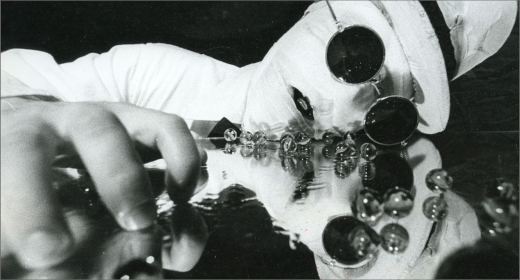



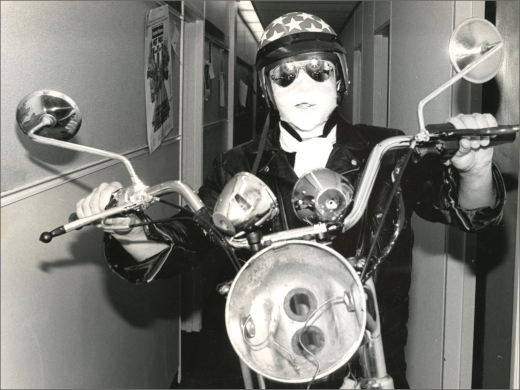
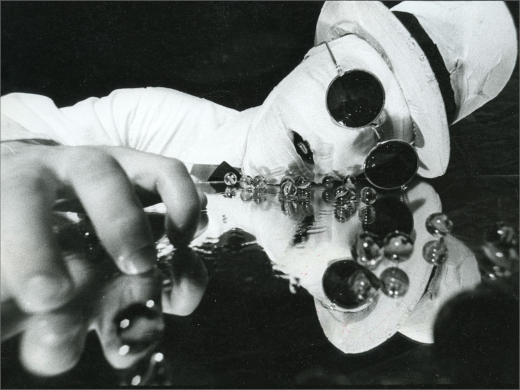


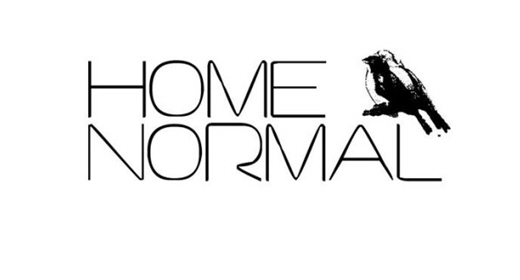
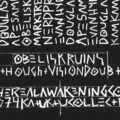
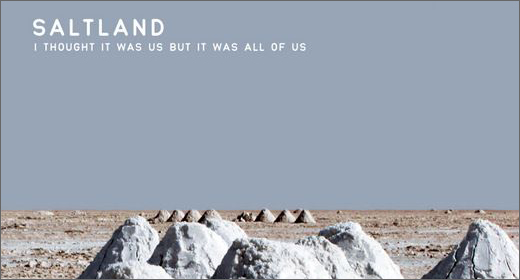
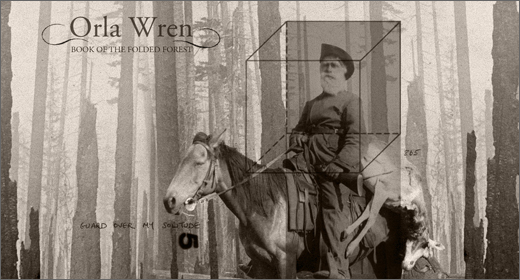
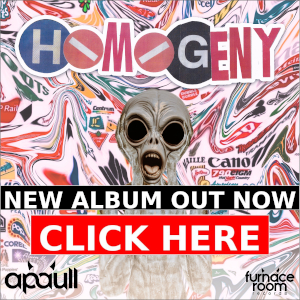






![Allmanna Town :: 1911 EP (Self Released) — [concise]](https://igloomag.com/wp/wp-content/uploads/2025/03/allmannatown-1911_feat2-75x75.jpg)



